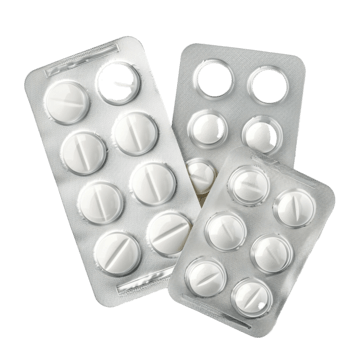Colchicine

Colchicine 0.6mg
Colchicine is a medication primarily used to treat gout attacks and familial Mediterranean fever by reducing inflammation in the body. It works by inhibiting the migration of white blood cells to inflamed areas, thereby decreasing pain and swelling. Often prescribed during acute gout flares or for chronic management, colchicine can help patients manage symptoms effectively when used according to a healthcare provider’s guidance.
Order NowDescription
Colchicine is an anti-inflammatory medication primarily used to treat gout flares and familial Mediterranean fever. It works by disrupting the inflammatory process, thus reducing pain and swelling during acute attacks.
Uses / Indications
- Acute gout flares
- Chronic gout prevention
- Familial Mediterranean fever (FMF)
- Pericarditis (inflammation of the heart’s lining)
- Preventing inflammation after surgery
Dosage and Administration
Adults:
For acute gout flares, the initial dose is often 1.2 mg followed by 0.6 mg an hour later. Maintenance dosage may vary based on the individual’s response.
Familial Mediterranean fever:
Typically, 1.2 to 2.4 mg daily, divided into smaller doses, as directed by a healthcare provider.
Note: Dosage may vary based on medical condition or doctor’s advice.
How It Works (Mechanism of Action)
Colchicine inhibits microtubule formation, a critical component in white blood cell mobility and the inflammatory response. By interfering with this process, colchicine reduces the buildup of inflammatory cells at the site of inflammation, thereby alleviating gout symptoms.
Side Effects
Common side effects:
- Nausea
- Diarrhea
- Abdominal pain
- Fatigue
Rare/serious side effects:
- Severe allergic reactions (rash, difficulty breathing)
- Blood disorders (e.g., agranulocytosis)
- Muscle weakness or pain
Seek medical attention if serious side effects occur.
Precautions / Warnings
- Inform your doctor if you have liver or kidney disease, or if you are pregnant or breastfeeding
- Use caution if taking medications that may affect liver function
- Monitor for signs of muscle weakness or pain
Drug Interactions
Colchicine may interact with:
- Certain antibiotics, antifungals, or antivirals
- Drugs that affect liver enzymes (e.g., statins, some antidepressants)
- Grapefruit juice (may increase colchicine levels)
Always inform your healthcare provider about any other medications or supplements you’re taking.
Storage Instructions
- Store at room temperature (20°C–25°C / 68°F–77°F)
- Keep away from moisture, heat, and direct light
- Keep out of reach of children
Missed Dose / Overdose
Missed a dose?
Take it as soon as you remember. If it’s close to the time for your next dose, skip the missed one. Do not double up.
Overdose symptoms:
- Severe nausea or vomiting
- Diarrhea
- Abdominal cramps
- Fatigue or weakness
Contact a poison control center or seek emergency medical help immediately.
Contraindications
- Allergic to colchicine or any of its ingredients
- Severe renal impairment
- Certain blood disorders (e.g., aplastic anemia)
Brand Names / Alternatives
- Colcrys
- Mitiger
- Colchicine USP (generic)

